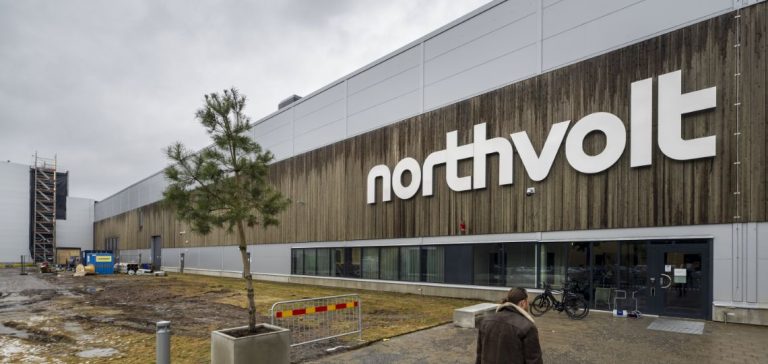Northvolt, the Swedish battery manufacturer, has officially filed for bankruptcy of its subsidiary responsible for the expansion of its factory located in Skelleftea, northern Sweden. This decision comes as the company faces increasing financial difficulties, jeopardizing its expansion plans and significantly affecting its workforce.
Since its establishment in 2016, Northvolt has positioned itself as one of the promising leaders in the European battery sector, aiming to bridge the continent’s lag behind Asian giants such as CATL, BYD in China, and LG in South Korea. The expansion of the Skelleftea factory was intended to strengthen Northvolt’s production capacity and support the growing demand for batteries for electric vehicles and energy storage solutions.
However, last September, Northvolt had already announced the freezing of the development of this site, also announcing the elimination of 1,600 jobs out of a total of 6,500 within the group. This drastic measure reflects the financial challenges the company is facing, exacerbated by persistent production delays and high operational costs.
Impact on Employees and Suppliers
The bankruptcy filing of the expansion subsidiary will have direct repercussions on the affected employees and the suppliers involved in the project. Northvolt stated that it is in contact with its suppliers and subcontractors to discuss the consequences of this decision and seek appropriate solutions. The suspension of the expansion project works underscores a strategic reevaluation by the company, which is seeking to stabilize its financial situation before pursuing any future growth initiatives.
Northvolt’s Strategic Reorientation
Facing the encountered challenges, Northvolt has decided to refocus its activities on the production of battery cells, thereby abandoning other segments of the production chain such as cathode manufacturing and recycling. This reorientation aims to optimize resources and concentrate on the company’s core business, while seeking to improve efficiency and profitability.
Context of the European Battery Market
Europe is investing heavily to develop its battery industry, aiming to reduce its dependence on Asian suppliers and support the transition to renewable energies. Northvolt, as a European pioneer, plays a crucial role in this dynamic. However, the production delays and financial challenges faced by the company highlight the obstacles that European players must overcome to compete on a global scale.
Future Perspectives
Despite the current difficulties, Northvolt remains determined to pursue its ambition of becoming a European leader in the battery sector. The company is currently exploring various options to restructure its operations and strengthen its financial position. The priority is now to stabilize battery cell production and ensure more rigorous cost management to avoid future setbacks.
Market Reactions
The news of Northvolt’s expansion subsidiary filing for bankruptcy has elicited mixed reactions in the market. Some analysts view this as a sign of the inherent challenges in the European battery industry, while others believe that this strategic reorientation could strengthen Northvolt’s position in the long term. Investors and partners are closely monitoring future developments to assess the company’s ability to overcome this difficult period.





















